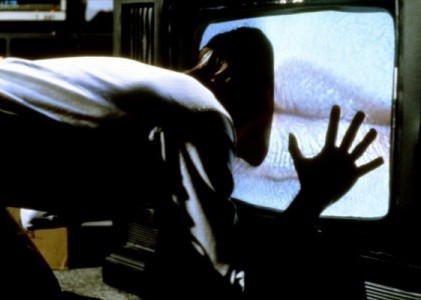Laws of Desire
COMMENTS (2)
Excellent article!
"A deep feeling of conservative pessimism—about new technologies, the liberalization of sexuality, and the intersection of the two—structures the world of Videodrome."
I think the film is ultimately more ambivalent towards technology's effects on human consciousness rather than deeply pessimistic. Remember, the primary antagonists of the film are actually right-wing moral majority types who want to use the Videodrome technology as a means of social control, while it was originally developed by the "Professor O'blivian" character as part of a more utopian project.
I'd argue that the film is ultimately about the war over control of the "new flesh" between the libertine and authoritarian strands of capitalist society.
Alex R posted 07.02.12
LATEST ARTICLES
-20140814-173707-thumb3.jpg)
Fighting Words
by Imogen Sara Smith
posted August 12, 2014

Fighting Words, Part 2
by Imogen Sara Smith
posted August 20, 2014

On the Margins: The Fil…
by Andrew Chan
posted August 12, 2014

Robin Williams: A Sense…
by David Schwartz
posted August 12, 2014
 Laws of Desire
Laws of Desire
KEYWORDS
David Cronenberg | Videodrome | film review | technology | sexuality | violence | psychology | televisionRELATED ARTICLE
Physical Instincts by Gina TelaroliThey Came From Within by Miriam Bale
Migrating Forms by Joshua Land
More: Article Archive
THE AUTHOR
Tom McCormack is a critic living in Brooklyn. His writing has appeared in Cinema Scope, Film Comment, Rhizome, The L Magazine, and other publications. He is a regular contributor to Moving Image Source, an editor at Alt Screen, and the film and electronic art editor of Idiom.
More articles by Tom McCormack

In other words, Videodrome isn't just about technologically mediated desire, it's about that desire as a battleground. "Because it has something... that you don't have, Max. It has a philosophy, and that is what makes it dangerous."
Alex R posted 07.02.12